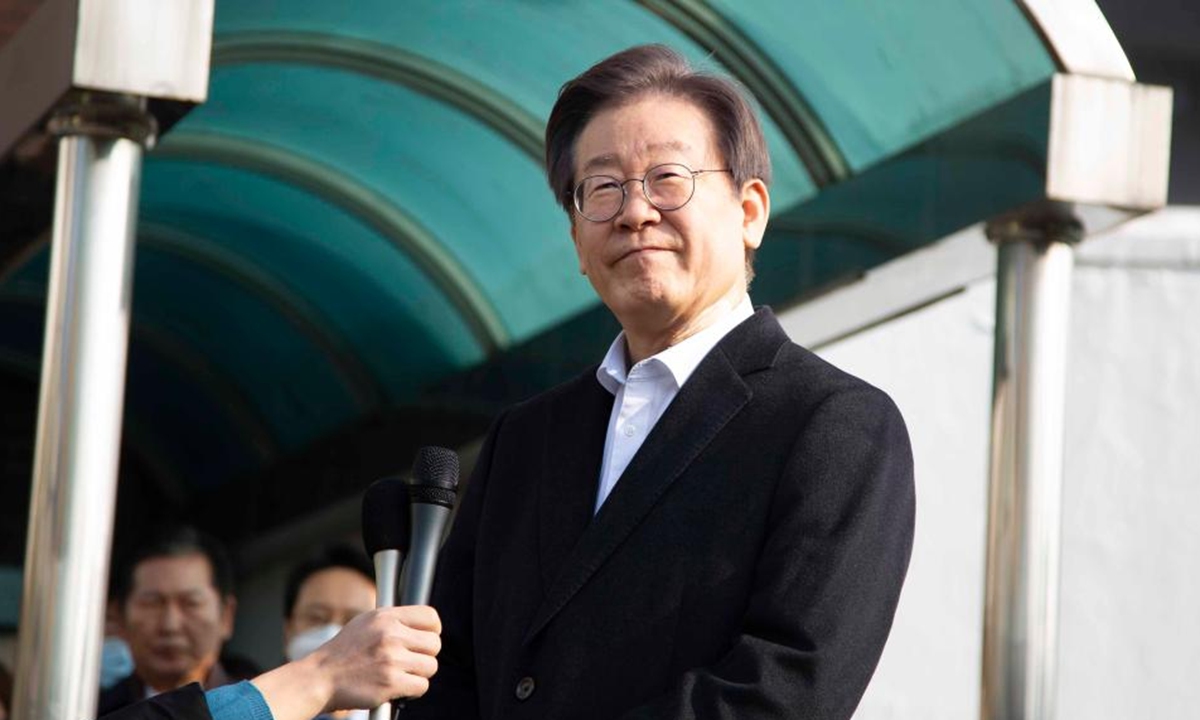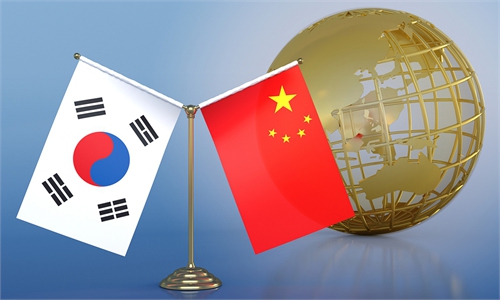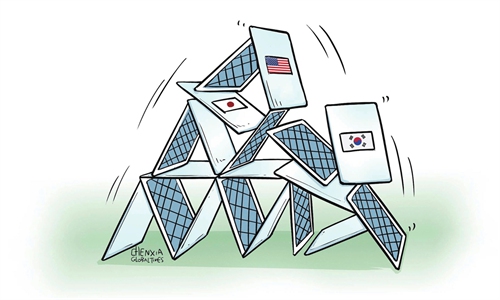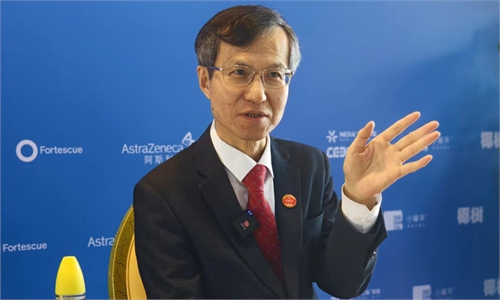
Lee Jae-myung, leader of South Korea's main opposition Democratic Party, speaks before leaving Seoul National University Hospital in Seoul, South Korea, Jan. 10, 2024. Photo: Xinhua
Han Dong-hoon, the interim chair of the ruling People Power Party (PPP) in South Korea, slammed on Sunday the opposition leader Lee Jae-myung for his recent remarks, saying it "reaffirms the Democratic Party of Korea's perception of itself as a vassal to China." The criticism reflects the lack of common sense in South Korea's understanding of China, and it is quite perilous.During an election campaign event on March 22, Lee publicly questioned the necessity of South Korea's involvement in cross-Straits relations and asked why the Yoon administration harasses China. He highlighted that the cross-Straits relations have nothing to do with South Korea, stating "just say 'Xiexie'" ("thank you" in Chinese) to the Chinese mainland and the Taiwan island. Lee is simply concerned that the excessive bias of the Yoon administration's policy has resulted in great damage to the China-South Korea relations as well as South Korea's own interests. Lee is speaking for the national interests of South Korea. He is clearly not speaking for China.
In fact, Lee only spoke a few words of truth about China, showing the basic respect for a sovereign country, which is beyond reproach. The cross-Straits issue is China's internal affair, this is common sense and a well-known fact recognized by the international community that has been clarified in the joint communiqué on the establishment of diplomatic relations between China and South Korea. However, this has drawn fierce attacks from the ruling forces in South Korea, with former Foreign Minister Park Jin even calling Lee's words "a ruinous remark." It is no wonder that during his tenure as foreign minister, the relationship between the two countries was in a deadlock.
It is worth noting that when the Yoon administration took office, "common sense" was listed as one of the four principles in the execution of the policies. We will not evaluate whether its domestic and foreign policies are in line with common sense, but at least South Korea has disregarded this principle in its policy toward China by repeatedly making outrageous remarks, especially on issues concerning China's core interests in the South China Sea and the Taiwan question, and it even shows a trend of going further away. Now, the ruling People Power Party's attacks around the common sense about China and the accusation of "being subservient to China" is an astonishing statement which clearly lacks common sense. Some out-of-line remarks during the election period in South Korea, using China-related remarks that are detached from common sense, are used to incite negative emotions. However, this is not rational behavior for the campaign.
According to the criticism logic of the PPP leader, South Korea's policy toward the US is the epitome of subservient diplomacy, even becoming an extension of US foreign policy. However, the ruling power in South Korea considers this to be normal. They must be either self-deceptive or lost in the situation. Regardless, South Korea has been tied to the US chariot of global intervention, even proclaiming itself as a "global pivotal state" to fully follow the US strategy. Where the US falls short, South Korea will make up for it. South Korea's performance on the Russia-Ukraine conflict issue is quite "eye-catching," and now it is meddling in the disputes between China and the Philippines. This is the natural result of South Korea conducting diplomacy under the framework of the US-South Korea alliance, and it inevitably means that South Korea will become the vanguard of the US containment of China.
We do not question the US-South Korea alliance, but we cannot help but question whether South Korea's policy toward China has lost the most basic principles, as this would not be in line with South Korea's national interests and the interests of the region. South Korea's economic growth rate and data on economic exchanges and personnel exchanges between China and South Korea all fully demonstrate what the reality is. The failure of South Korea's bid for the Busan Expo last year is also enough to demonstrate South Korea's status as a "global pivotal state" and the practical benefits of following the US.
The relationship between China and South Korea is not complicated. It is simple to improve the relationship, as long as South Korea's understanding of China and its policies toward China return to common sense. If the ruling power in South Korea continues to walk down the path with outdated and erroneous perceptions of China, it is clear that it will not be China that suffers.
The author is the director and professor of the Center for Korean Peninsula Studies at the Shanghai University of International Business and Economics. opinion@globaltimes.com.cn



